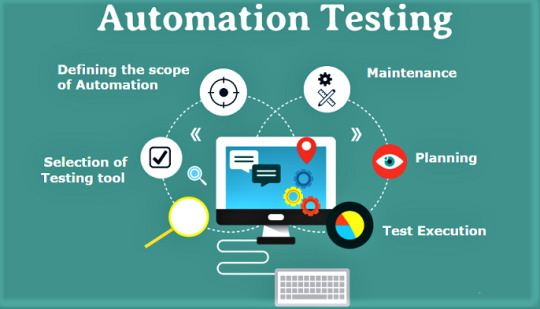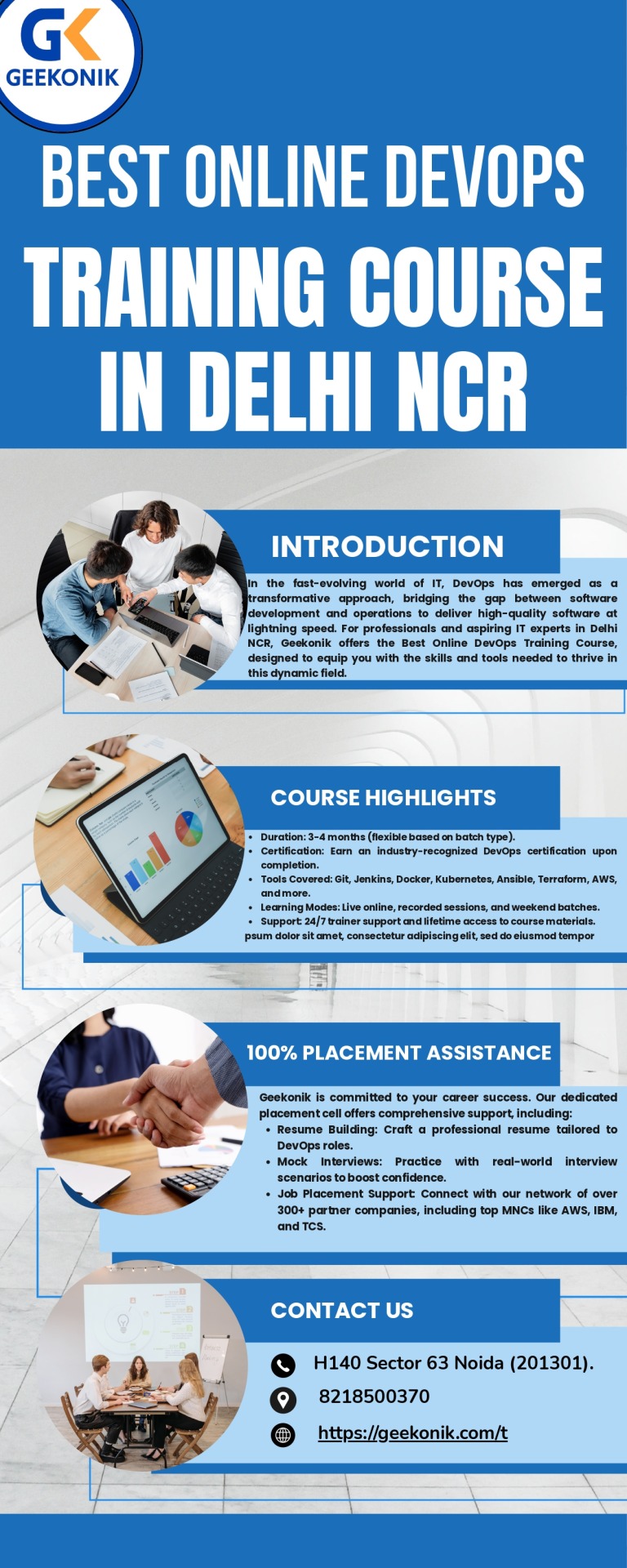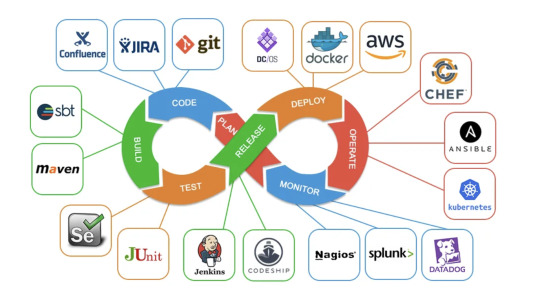#DevOps testing
Explore tagged Tumblr posts
Text
Automation Testing Insights: Transforming Testing
The global automation testing market size is expected to reach USD 92.45 billion by 2030. Prominent technological advancement in artificial intelligence (AI) and machine learning (ML) is propelling the demand for the market. Mobile application usage is growing across various end-user industries, and smartphone penetration is rising, opening an attractive potential for market expansion. Furthermore, there is a rising demand for automation testing as web-based applications have developed significantly and new software technologies have emerged. The market is growing rapidly due to the increasing usage of ML and AI for advanced analytics and continuous testing across DevOps and DevSecOps areas.

Automation Testing Market Report Highlights
The services segment dominated the market and accounted for over 56% of the global revenue owing to rapid advancements in implementation services, which make it easier to include automation into a functioning infrastructure for software testing
With the aid of this service, automation is integrated into an existing software automation testing setup
The large enterprises segment held the largest revenue share in 2022 as it helps improve efficiency, reduce manual effort, increase test coverage, and ensure the quality of software applications
The BFSI segment is estimated to have significant growth over the forecast period; adopting digitalization in the BFSI sector creates a significant demand for application software automation testing
Gain deeper insights on the market and receive your free copy with TOC now @: Automation Testing Market Report
The emerging use of RPA to automate time-consuming, error-prone manual processes are just a few instances of the usage of AI & ML in automation testing. Moreover, a bot uses the page’s numerous links and web forms to systematically explore through an online application when web crawling or spidering. This is a new use for AI and ML in automation testing. This approach is typically used for indexing online browsing. It may be improved further to perform reverse engineering on an application being tested and automatically find Test Cases. Emerging automation testing tools are significantly fueling market growth.
For instance, Testcraft, a codeless Selenium test automation platform for regression and continuous testing, as well as monitoring of web applications, is gaining traction among users. Their revolutionary AI tech removes maintenance time and cost, as it certainly affects changes in the app. Similarly, Applitools Eyes, Testim, and Test.ai are more automation testing tools propelling the market growth. Furthermore, mergers and acquisitions by other key players are propelling market growth. For instance, in 2022, to improve the user experience on 5G smartphones, Key sight introduced AI-driven and automated testing. Automation and AI enable mobile service providers and app developers to more swiftly evaluate how smartphone users engage with native apps in the real world.
#Automation Testing#Quality Assurance#Software Testing#Test Automation#Continuous Testing#Test Automation Framework#DevOps Testing#Selenium#Test Automation Tools#Performance Testing#Regression Testing#Agile Testing#UIAutomation#Test Scripting#Test Automation Engineer#Codeless Automation#Automation Strategy#CI/CDTesting#Test Automation Best Practices
0 notes
Text
Abathur

At Abathur, we believe technology should empower, not complicate.
Our mission is to provide seamless, scalable, and secure solutions for businesses of all sizes. With a team of experts specializing in various tech domains, we ensure our clients stay ahead in an ever-evolving digital landscape.
Why Choose Us? Expert-Led Innovation – Our team is built on experience and expertise. Security First Approach – Cybersecurity is embedded in all our solutions. Scalable & Future-Proof – We design solutions that grow with you. Client-Centric Focus – Your success is our priority.
#Software Development#Web Development#Mobile App Development#API Integration#Artificial Intelligence#Machine Learning#Predictive Analytics#AI Automation#NLP#Data Analytics#Business Intelligence#Big Data#Cybersecurity#Risk Management#Penetration Testing#Cloud Security#Network Security#Compliance#Networking#IT Support#Cloud Management#AWS#Azure#DevOps#Server Management#Digital Marketing#SEO#Social Media Marketing#Paid Ads#Content Marketing
2 notes
·
View notes
Text
DevOps as Service
2. PROCESS IMPLEMENTATION
We proceed with the analysis, design, building, automation, and implementation in the specified areas.
2 notes
·
View notes
Text
Role of Data Engineering Solutions in Modern Business
AcmeMinds, a leading data engineering company, provides comprehensive data engineering services to help businesses transform raw data into actionable insights. Their tailored data engineering solutions include building scalable data pipelines, data cleaning and transformation, real-time analytics, and support for AI and machine learning. AcmeMinds empowers businesses to optimize decision-making, enhance operational efficiency, and drive sustainable growth.
2 notes
·
View notes
Text
SPARK TECHNOLOGIES
We deliver value by identifying opportunities that align with business objectives and adopting an agile approach to implement them.
#Web developement#Software testing#Devops & Engineering#Salesforce#Mobile Application Developmen#Data Analytics#IT Consulting#IT Outsourcing#Web Design#Content Management System#Digital Marketing
2 notes
·
View notes
Text



Levitica Technologies Pvt Ltd, established in 2013, specializes in web development and testing. We have branches in Hyderabad and Rajahmundry; the Hyderabad office focuses on project execution, while the Rajahmundry branch is dedicated to training and placement services.
#software companies in rajahmundry#Software Development Companies in Rajahmundry#Software Companies in Andhra Pradesh#Software Trainings in Rajahmundry#Software Course Training in Rajahmundry#Software Testing Courses in Rajahmundry#Full Stack Development in Rajahmundry#Digital Marketing Course in Rajahmundry#AWS Course in Rajahmundry#Devops Course in Rajahmundry#Linux Course in Rajahmundry#Best Software Training Institute in Rajahmundry#Best Placement Provider in Rajahmundry
2 notes
·
View notes
Text

Geekonik offers the Best Online DevOps Training Course in Delhi NCR, designed for beginners and professionals alike. Master tools like Docker, Jenkins, Kubernetes, and AWS through expert-led live sessions, hands-on projects, and real-world scenarios. Flexible schedules, career support, and industry-recognized certification make Geekonik your ideal partner for a successful DevOps career. Start your journey today!
#Best Online DevOps Training Course in Delhi NCR#Online Software Testing Training Institute in Delhi Ncr#Online aws course
1 note
·
View note
Text
The Internet of Things (IoT) is rapidly transforming our world, weaving a complex tapestry of interconnected devices that collect, share, and analyze data.
0 notes
Text
Platform Engineering Vs Devops: Difference In 2025

Let’s start with DevOps, the buzzword that changed how we think about building and shipping software. These days, every college student and other professional wants to become a DevOps engineer. If you are an aspiring DevOps engineer or already working as a DevOps engineer, this blog will help you understand the difference between Platform engineering and Devops
Platform engineering is really changing every company’s perspective on developing platforms. These days, every company has started building its own internal developer platform (IDP). Let’s see why platform engineering is so important and whether platform engineering is replacing DevOps.
What is DevOps?
If you see the definition of DevOps online, this is what you get to see:
“DevOps is the combination of cultural philosophies, practices, and tools that increases an organization’s ability to deliver applications and services at high velocity.”
The goal? To shorten the software development life cycle and deliver high-quality software quickly and reliably. It’s all about collaboration, automation, and breaking down silos between teams.
But DevOps isn’t just about tools. It’s about people working together, sharing responsibility for building, testing, and releasing code. Think of it as a bridge that connects development and operations, powered by automation and transparency.
Now let’s come to our hero.

What is Platform Engineering?
Platform engineering focuses on designing, building, and maintaining the internal platforms that software teams use to build, test, deploy, and operate applications. These platforms aim to make developers’ lives easier by providing self-service tools, infrastructure as code, automation, and standardized processes.
If DevOps is the bridge, platform engineering is like building a really smart highway system on top of it.
Imagine you’re a developer. Instead of dealing with infrastructure headaches every time you want to deploy something, a platform engineer has already built you a “golden path”—a toolkit that lets you focus on your code and ship it faster (and safer).
For example, if you are a developer who needs access to a K8s cluster, instead of waiting for DevOps team or your manager to give you access, imagine if there is a platform (Internal Developer platform) where you can self-provision everything without needing to wait for anyone. How cool is this, right?
How are Platform Engineering and DevOps Different?
At a first glance, DevOps and platform engineering can look pretty similar—they both want to speed up delivery, improve collaboration, and automate all the things. But here’s the big difference:
DevOps is a set of practices and a cultural movement. It encourages developers and operations to work together, adopt automation, and own the entire lifecycle.
Platform Engineering is about productizing infrastructure and tooling. Platform engineers build the reusable platforms, paved roads, and self-service portals that enable DevOps to scale across a company.
How to Get Started with DevOps?
To be honest, the answer will differ. From a company perspective, they may already be implementing DevOps and have DevOps engineers in place. But if you are someone new to DevOps and want to start learning, here’s how you can begin:
First, start with containers and try to containerize your application. Once you are familiar with containerization technology, learn CI/CD. Then, start using any of the popular cloud platforms to deploy your application. Finally, explore Kubernetes. These are tools in DevOps, but you don’t need to learn every tool—focus on learning the technology behind them.
For example, learn containerization technology first before diving into Docker or Podman. The same applies to all tools: understand the underlying technology first, then use the tools.
How to Get Started with Platform Engineering?
I know everyone has this question: How do I get started with Platform Engineering? My first recommendation is to use tools that provide platforms or help in building platforms. This will give you a better understanding of how platform engineering works. Learning theory, like reading this blog, is fine, but try using tools that are useful for building platforms. There are many tools on the market, like Backstage, and the most popular tool I would recommend is Crossplane. Use these tools and then analyze how they can be used to build platforms that solve the internal issues developers are currently facing.
Also, join the Platform Engineering community. The CNCF has a dedicated working group for Platform Engineering. You can join the community and learn how others are building platforms.
How to Implement DevOps

How to Implement Platform Engineering
Understand Developer Needs: Interview your dev teams. What slows them down? What do they need to move faster?
Design for Self-Service: Build tools and platforms that let developers help themselves.
Standardize and Automate: Use Infrastructure as Code (IaC), CI/CD pipelines, and reusable modules.
Feedback Loop: Keep talking to your users (the devs) and keep improving the platform.
Measure Success: Track adoption, developer satisfaction, and the time it takes to deliver features.
Is Platform Engineering Replacing DevOps?

It’s a question a lot of people are asking as platform engineering gains popularity: Is platform engineering replacing DevOps?
The short answer is no platform engineering is not replacing DevOps. Instead, it’s building on the foundation that DevOps created.
DevOps introduced the world to better collaboration, automation, and a culture of shared responsibility between development and operations. Platform engineering takes these ideas a step further by creating internal platforms and tools that make it easier for teams to practice DevOps at scale.
Think of it like this:
DevOps is about changing how teams work together and automate software delivery.
Platform engineering is about building what teams use internal products, self-service tools, and reusable systems that support DevOps practices.
In fact, platform engineering and DevOps go hand in hand. Platform engineering empowers DevOps teams to work more efficiently and consistently, while DevOps culture ensures that platforms are used and improved collaboratively. Rather than a replacement, platform engineering is the next evolution that helps organizations get even more value out of DevOps.
Integrate Keploy into Your CI/CD Pipeline for Continuous Testing
In a typical CI/CD pipeline, I’m sure everyone has integrated some static tools and security tools. But what if there's something we can add for testing? Yes, you can add Keploy to your CI/CD pipeline so that testing becomes a part of it. This way, every time you make changes, testing is included, and you can identify bugs and confirm if any new regressions have been introduced.
No matter where your CI/CD pipeline is whether it’s in GitHub, GitLab, or Jenkins you can run Keploy.
To learn more about Keploy integration with GitHub: https://keploy.io/docs/ci-cd/github/
To learn more about Keploy integration with Gitlab: https://keploy.io/docs/ci-cd/gitlab/
To learn more about Keploy integration with Jenkins: https://keploy.io/docs/ci-cd/jenkins/
Benefits of DevOps
Faster releases: Automate everything from builds to deployment.
Better collaboration: No more “throwing code over the wall.”
Higher reliability: Automated tests and monitoring catch issues earlier.
Continuous improvement: Feedback loops make processes better over time.
More fun at work: Developers and ops feel like they’re on the same team.
Benefits of Platform Engineering
Self-service: Developers don’t have to wait for ops to provision resources.
Consistency: Standardized tools and processes across teams.
Scalability: Easy to grow as your organization grows.
Happier developers: Less time fighting with infrastructure, more time coding.
Security and compliance: Built-in guardrails keep your cloud safe.
Conclusion:
I hope you had some insight on platform engineering and DevOps. I guess DevOps people already know and have used DevOps, but platform engineering is something new to many people. Many organizations have started investing in platform engineering, so it is good to know about these concepts. More importantly, if you are a DevOps engineer, start investing in yourself on platform engineering. Build some simple platforms, do POCs, and then you will understand the importance of platform engineering and how it will improve your team’s productivity.
FAQs:
1. Can you have DevOps without platform engineering? Yes DevOps can work with manual processes or basic automation, but it scales better with a strong platform.
2. Does platform engineering replace DevOps? No. Platform engineering empowers DevOps by providing better tools and reusable infrastructure.
3. Is platform engineering only for big companies? No. Even small teams can benefit from simple platforms, especially as they grow.
4. What skills do platform engineers need? Cloud, automation, programming, CI/CD, and empathy for developers’ pain points.
5. Which roles should own developer experience—DevOps or platform engineering? Both have a stake, but platform engineers are increasingly focused on developer experience as their main product.
0 notes
Text
#devops#automation testing company#automation testing services#software testing services#software testing company
1 note
·
View note
Text
Navigating the Nervous Waters of Coding
Daily writing promptWhat makes you nervous?View all responses AI-generated image. “This code is going well…a little too well.” The Code Creep: Why Every Line Can Feel Like a Tightrope Walk What makes me nervous? You might think it’s a looming deadline or a particularly gnarly algorithm. And while those definitely get the heart racing, the real source of my coding jitters? It’s the act of…
#Artificial Intelligence#best practices#c#c++#career advice#Cloud computing#coding#dailyprompt#dailyprompt-1916#data science#debugging#devops#java#javascript#machine learning#mobile development#Programming#python#software development#testing#tutorials#web development
1 note
·
View note
Text
Say goodbye to fragile deployments and late-night outages. SDH's #DevOps expertise ensures you have reliable, repeatable workflows that scale.
0 notes
Text
Enterprise Application Development Services
AcmeMinds offers comprehensive Enterprise Application Development Services tailored to meet the unique needs of large organizations. Our solutions enhance operational efficiency, streamline workflows, and integrate seamlessly with existing systems. With a focus on scalability and security, AcmeMinds empowers businesses to thrive in a competitive landscape through innovative technology solutions. Read more ...
2 notes
·
View notes
Text
Netflix's Chaos Monkey: Embracing Failure for Resilience
Chaos Monkey is an innovative tool developed by Netflix as part of their Simian Army suite of testing tools. It deliberately introduces failures into your cloud infrastructure to test system resilience and recovery capabilities. Chaos Monkey works by randomly terminating instances in your production environment. This might sound counterintuitive, but by forcing failures to occur, it helps…
#AWS#chaos engineering#chaos monkey#cloud infrastructure#cloud resilience#devops#disaster recovery#failure injection#fault tolerance#high availability#implementation tutorial#infrastructure automation#infrastructure testing#microservices testing#netflix chaos monkey#netflix open source#netflix technology#production testing#resilience testing#simian army#site reliability engineering#system architecture#system reliability#system resilience
0 notes
Text
The Role of Hybrid Mobile App Development and Software Testing

Introduction
With the rapid evolution of mobile applications, businesses worldwide are looking for cost-effective and high-quality solutions. Hiring React Native developers in India has become a popular choice due to India's vast talent pool and affordability. Additionally, partnering with a hybrid mobile application development company in India ensures businesses get scalable and efficient mobile applications. However, developing an app is just one part of the process—ensuring its quality requires a reliable software testing company in India.
In this article, we will explore why hiring React Native developers in India is beneficial, how hybrid mobile development is transforming businesses, and why software testing is crucial for delivering high-performance applications.
Why Hiring React Native Developers in India is a Smart Choice?
React Native is one of the most widely used frameworks for mobile app development. It allows developers to build cross-platform applications using a single codebase, significantly reducing development time and costs. Here’s why businesses prefer to hire React Native developers in India:
1. Cost-Effective Development
India is known for offering world-class software development services at a fraction of the cost compared to Western countries. Companies can save up to 60% on development costs by outsourcing their projects to Indian developers.
2. Access to Skilled Developers
India has a massive pool of skilled developers who specialize in React Native. They are well-versed in modern development practices, ensuring high-quality and efficient applications.
3. Faster Development Time
Hiring experienced React Native developers in India means businesses can significantly reduce their development timelines. Since React Native allows for code reusability, applications can be built faster without compromising quality.
4. Seamless Integration with Third-Party Services
React Native developers in India are proficient in integrating third-party services such as payment gateways, analytics tools, and cloud services, enhancing the functionality of mobile applications.
5. Strong Community Support
React Native has an extensive developer community in India. This ensures that businesses hiring Indian developers always have access to the latest updates, plugins, and best practices.
The Role of a Hybrid Mobile Application Development Company in India
Many businesses prefer hybrid mobile app development as it offers flexibility, cost savings, and faster deployment across multiple platforms. Hybrid apps are built using frameworks like React Native, Flutter, and Ionic, ensuring a smooth user experience across Android and iOS.
1. Cost-Effective App Development
A hybrid mobile application development company in India can deliver feature-rich apps at a lower cost compared to native app development. Since hybrid apps use a single codebase, businesses save time and money on development and maintenance.
2. Faster Time-to-Market
Speed is crucial in today’s competitive digital world. With hybrid development, businesses can launch their apps faster as developers do not need to write separate codes for Android and iOS.
3. Scalability and Flexibility
Hybrid apps are designed to be scalable, meaning businesses can expand their applications with minimal effort. Whether adding new features or integrating advanced functionalities, hybrid apps offer flexibility.
4. Seamless Performance Across Devices
A top hybrid mobile application development company in India ensures that apps work smoothly across different devices and screen sizes, providing a consistent user experience.
5. Easy Maintenance and Updates
Unlike native apps, hybrid apps allow developers to make changes quickly and push updates without requiring users to download new versions manually.
Why is Software Testing Essential?
Developing a mobile application is just the first step. To ensure an app performs well and is free from bugs, businesses must partner with a software testing company in India.
1. Enhancing App Quality
Software testing ensures that mobile applications meet quality standards before they reach the users. Testing helps identify and fix bugs that may otherwise lead to poor user experiences.
2. Reducing Costs in the Long Run
Identifying and fixing issues during the development stage prevents costly fixes after launch. A software testing company in India can help businesses save money by conducting thorough testing before deployment.
3. Security and Data Protection
With cyber threats on the rise, security testing ensures that apps protect user data from vulnerabilities. Indian testing companies follow international security standards to safeguard applications.
4. Performance Optimization
A slow or buggy app can lead to user frustration and loss of customers. Performance testing helps optimize app speed and functionality, ensuring a seamless experience for users.
5. Compatibility Across Devices and Platforms
Apps need to function properly across different devices and operating systems. Software testing companies in India conduct compatibility testing to ensure that applications work flawlessly on various platforms.
Conclusion
Hiring React Native developers in India, choosing a hybrid mobile application development company in India, and working with a software testing company in India can significantly enhance business growth. React Native offers a cost-effective and efficient way to develop mobile apps, while hybrid app development ensures scalability and flexibility. Lastly, thorough software testing guarantees high-quality, secure, and performance-optimized applications.
For businesses looking to build robust mobile applications, BuzzyBrains offers expert React Native developers, hybrid app development services, and comprehensive software testing solutions. Partnering with a trusted technology provider like BuzzyBrains ensures your app is future-proof and delivers an exceptional user experience.
For more details on hiring developers or building mobile apps, visit BuzzyBrains today!
#buzzybrains software#software testing company in india#devops companies in india#hybrid mobile application development company in india#hire react native developers india#hire react native developers in india
0 notes
Text
The MERN stack (MongoDB, Express.js, React.js, Node.js) is a popular full-stack JavaScript framework for building modern web applications. This stack allows developers to use a single language (JavaScript) across both client-side and server-side code. If you're a MERN stack developer, mastering key tasks within each of these technologies is crucial for creating robust and scalable web applications.
In this guide, we'll walk through the 10 most important tasks every MERN stack developer should master, helping you build a strong foundation for web development.
#MERNStack#MongoDB#ExpressJS#React#NodeJS#FullStackDevelopment#WebDevelopment#FrontendDevelopment#BackendDevelopment#JavaScript#API#RESTAPI#CRUDOperations#ReactJS#StateManagement#MongoDBQueries#Authentication#Authorization#JWT#Git#GitHub#DevTools#DevOps#Testing#PerformanceOptimization#Security#VersionControl#Deployment#CI/CD#Docker
0 notes